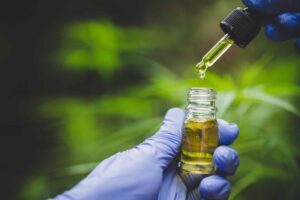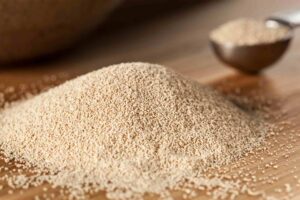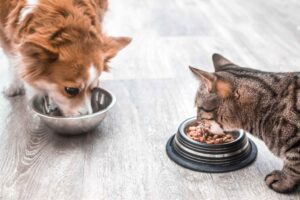Many of the compounds produced by food degradation can have beneficial effects on host health. Previous studies in dogs, for example, have evaluated the impact of dietary supplementation with specific fiber mixes-in this case, fiber from pecan nut shells, flaxseed, and cranberry, citrus, and beet powders-on the animal’s health.
These studies have shown that bacteria present in the large intestine, through the provision of specific fiber mixes, can switch from a mainly protein to a mainly carbohydrate type of digestion, resulting in the production of compounds with beneficial properties.
The Authors of this study have tested on a sample of 56 cats diet supplementation for 31 days with a fiber mix at three concentrations (1%, 2% and 4%) consisting of ground pecan shell, whole brown flaxseed, beet pulp, citrus pulp, and cranberry to analyze changes in fecal composition in terms of metabolites and/or bacteria.
Impact of fiber mix on production of beneficial metabolites
In cats consuming the 4% fiber mix, fecal levels of ammonium and branched-chain fatty acids (BCFA) decreased compared with basal levels and compared with the other groups.
The addition of the fiber mix to the diet, at any percentage, resulted in an increase in beneficial metabolites such as polyphenols, hesperidin, hesperetin, ponciretin, secoisolariciresinol diglucoside, secoisolariciresinol and enterodiol.
Hesperidin, for example, reduces inflammation through regulation of proinflammatory cytokines and decreases oxidative stress, thus conferring a number of health benefits. Ponciretin, on the other hand, is a flavonoid metabolized by intestinal bacteria from its precursor poncirin derived from orange trifoliate. Like other citrus flavonoids, ponciretin also appears to have anti-inflammatory and anticancer effects.
Impact of fiber mix on fecal microbiota
A small shift nonsignificant in the fecal microbiota. This finding is in line with both previous results obtained in studies in dogs and the observation that dietary changes in the microbiota of healthy animals are often not as pronounced as changes induced in the microbiota in animals with a specific disease.
However, the changes in fecal metabolites observed following consumption of the fiber mix indicate that the gut microbiota was able to metabolize the fiber mix.
In addition, the shift of its composition could also depend on the concentration of the fiber mix. In fact, in a study in dogs, the composition shifted toward a higher abundance of saccharolytic bacteria only when the fiber mix was administered at 14 percent (w/w). It is, therefore, plausible that a shift in the intestinal microbiota of cats could also have been observed in the study presented here if the fiber mix had been administered at higher concentrationsi than 4 percent.
Future developments
Host health benefits through alterations in postbiotic production by the gut microbiota are among the goals of nutrition-based interventions. Because changes in the metabolome may appear before the onset of clinical symptoms, these interventions may be important in reducing the future development of pathological conditions in healthy individuals or normalizing certain metabolic pathways through the production of beneficial metabolites by the gut microbiome.
Reference
Jewell DE, Jackson MI, Cochrane CY, Badri DV. Feeding Fiber-Bound Polyphenol Ingredients at Different Levels Modulates Colonic Postbiotics to Improve Gut Health in Cats. Animals (Basel). 2022 Jun 27;12(13):1654. doi: 10.3390/ani12131654.







